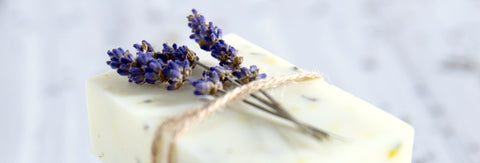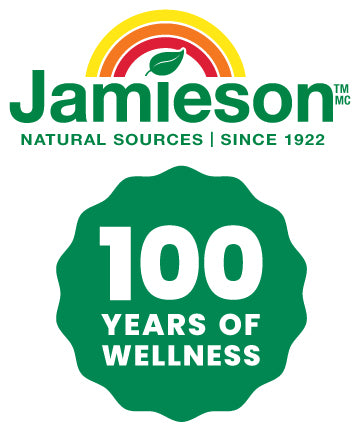When it’s cold outside, we say that we can feel it in our bones. Obviously, there’s some poetic license being taken, but it’s not entirely untrue. When it’s winter, our bodies prioritize keeping our vital organs warm, and coupled with the windchill, that means our muscles lose heat more easily. As a result, we tighten up, our muscles work harder, and our joints stiffen.
The good news is, we can fight it. A war with winter isn’t one we can win, but it’s certainly a battle we can survive. So if you’re ready to push back, here are seven ways to be good to your bones this winter.
Bundle up and get outside

As Canadians, we pride ourselves on our ability to withstand the cold. Winter is a crucial part of our identity, and while nobody’s suggesting that you should be putting yourself in dangerous cold-weather situations, resisting the urge to hibernate entirely can go a long way. So whether you’re playing shinny or just going for a mid-day walk, bundling up and bracing the outdoors will help produce feel-good endorphins.
Make vitamin D a priority
Sometimes called the “sunshine vitamin” because your body produces it when exposed to sunlight, vitamin D assists with a number of essential functions in your body, including the absorption of calcium and maintenance of bone density. But research has shown that Canadians aren’t getting enough of it. A 2010 study published by The Vitamin D Society found that only 10% of Canadians aged 6 to 79 were at or above the optimal vitamin D level, and winter could very well be a contributing factor. It’s a perfect storm: days are short, and we spend most of our time indoors hiding from the frigid temperatures. Luckily, there are easy ways to boost your vitamin D during the cold, dark months. Start with your diet—fatty fish like Salmon, egg yolks, and mushrooms are great sources—and be sure to supplement with a daily vitamin D supplement to keep your bones strong and healthy.
Invest in the right cold-weather gear
When it comes to warmth, your choice of material matters, and picking the right wool can make a world of difference. Did you know that alpaca wool is softer and warmer than sheep’s wool? Or that it’s also waterproof and hypoallergenic? Those little differences can keep you from catching a chill during an unexpected cold snap. You’re also going to want to dress appropriately from the ground up, which means boots are a must for icy conditions. A good grip goes a long way when you find yourself walking on ice. After all, the best way to be good to your bones this winter is to avoid falls. It’s hard to fit mittens over a cast.
Warm up with bone broth
Whether you’re dealing with a winter cold or you’re simply cold from the winter, a bowl of bone broth can do more than just warm your bones. A paleo favourite, bone broths have long been heralded as protein-packed and anti-inflammatory, and at least one study published back in 2000 confirmed that chicken soup has some mild anti-inflammatory effects. Another study, published in the British Journal of Pharmacology, suggested that the amino acids proline, glycine, and arginine—all present in bone-based broth—were its keys to curbing inflammation. The beauty of broth is how easy it is to make additions to it. If you’re bored of bone broth, you can always throw in vitamin-rich foods like carrots or spinach to make it even healthier. Worst-case scenario, a good broth will warm you up in an instant, and in the dregs of winter, that’s a luxury we all wish for.
Embrace fermented foods

Kombucha is more popular than ever, and with good reason. Not only is it delicious, but the health benefits of this fermented tea are slowly winning out in scientific research. In 1998, Cornell University conducted a study that found that drinking kombucha could promote an improved immune system and contribute to one’s general well being. Another alternative to fermented tea is to go with a more traditional cultured food like yogurt. Its natural probiotics contribute to healthy gut bacteria, and can also boost your calcium intake, directly contributing to healthier and stronger bones. If neither of those sounds like something you’re into, consider a probiotic supplement to bolster your digestive health, along with a calcium supplement to strengthen your bones.
Add some sweat to your stretching
Hot yoga is more than just a trendy way to destress. Working out without a proper warmup is an easy way to end up in pain; pulled muscles and injured joints and ligaments are more likely when you’re working out cold. Hot yoga, then, is the best of both worlds. It keeps your body warm, reducing the risk of over-stretching and hurting yourself, and it’s a fantastic workout in and of itself. When you’re done with your workout, a magnesium supplement can help soothe sore muscles and reduce the potential for a spasm.
Soak in an Epsom salt bath

Sometimes all you need after a cold day at work is a warm bath at home. Sinking into your soaker tub is an immediate way to warm up and relax, and with the help of epsom salts, it could also help to soothe any muscle pain you might be dealing with. There hasn’t been a ton of conclusive research into the effectiveness of epsom salts, though it’s believed that the sulphate and magnesium in the salts can be absorbed into the body. Epsom salts can also be a surprisingly great exfoliant, helping to soothe itchy winter skin.
REFERENCES:
- Virk, Gagan et al. “Short Exposure to Light Treatment Improves Depression Scores in Patients with Seasonal Affective Disorder: A Brief Report.” International journal on disability and human development : IJDHD 8.3 (2009): 283–286. PMC. Web. 12 Oct. 2018.
- Sanassi LA. Seasonal affective disorder: is there light at the end of the tunnel? JAAPA. 2014 Feb;27(2):18-22;quiz 23. doi: 10.1097/01.JAA.0000442698.03223.f3. PubMed PMID: 24394440.
- Rennard BO, Ertl RF, Gossman GL, Robbins RA, Rennard SI. Chicken soup inhibits neutrophil chemotaxis in vitro. Chest. 2000 Oct;118(4):1150-7. PubMed PMID: 11035691.
- G Thomas, G B West. Amino acids and inflammation. Br J Pharmacol. 1973 Mar; 47(3): 662P.
- Sreeramulu, G. , Zhu, Y. and Knol, W. (2001), Characterization of Antimicrobial Activity in Kombucha Fermentation. Acta Biotechnol., 21: 49-56. doi:10.1002/1521-3846(200102)21:1<49::AID-ABIO49>3.0.CO;2-G




